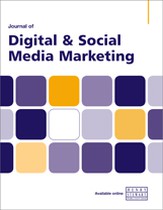Natural language processing for internal link optimisation: Automating content relationships for better search engine optimisation
Abstract
The optimisation of internal links plays a critical role in improving website navigation, user engagement and search engine optimisation (SEO) performance. With the rapid evolution of natural language processing (NLP), the automation of internal linking promises better scalability, accuracy and personalisation. This paper explores the incorporation of NLP techniques such as semantic analysis, entity recognition and dynamic link generation into the framework of internal linking. It reviews technical methodologies, identifies problems and investigates actual applications of practical implementation, while also drawing insight from the literature. It highlights NLP-driven frameworks as critical to enhancing content relationships by applying more sophisticated models such as BERT (Bidirectional Encoder Representations from Transformers) and GPT-4 (Generative Pre-trained Transformer 4) to better semantic understanding and contextual relevance. The issues presented include computational costs, content sparsity and keyword manipulation risks, while other considerations and solutions for maintaining adherence to SEO are also discussed. The case studies further demonstrate real-world applications that deliver tangible benefits through increased organic traffic, improved user engagement and link management processes. Findings point to the possibility of transforming internal linking through NLP, allowing for adaptive and user-oriented SEO strategies. In conclusion, this paper highlights the importance of balancing automation and human-based oversight to ensure that risks such as irrelevant or misleading links do not prevail. Future advances in generative AI and multimodal models, supplemented by real-time analytics, are set to further personalise and fine-tune the strategy in internal linking to realise a deeper reaping of engagement and sustenance of SEO competition. This paper adds to the knowledge of NLP in SEO, providing practical insights for practitioners and opening opportunities for future innovation. It advocates for further research into scalable, ethical and adaptive NLP frameworks that address the dynamic needs of digital marketing.
The full article is available to subscribers to the journal.
Author's Biography
Tejaswi Suresh leads search engine optimisation (SEO) for one of the world’s most visited websites. Prior to this, he led SEO for a US-based business-to-business travel unicorn and consulted with both the world’s largest quiz platform and a major global e-commerce player, helping them unlock sustainable organic growth. He is a recognised expert in programmatic SEO and artificial intelligence-driven content strategies and the author of a best-selling e-book on programmatic SEO. He also developed the SCALE framework for programmatic SEO. He holds an MSc from the IESEG School of Management in Paris. Currently, Tejaswi is building agentic workflows; AI-powered systems that automate SEO processes for enterprise websites, enabling large-scale, intelligent and efficient execution of search strategies.
